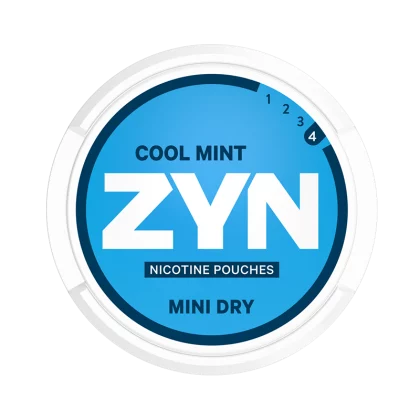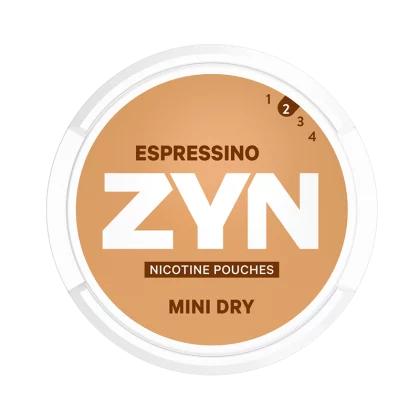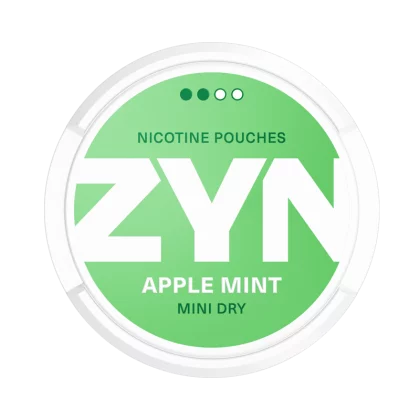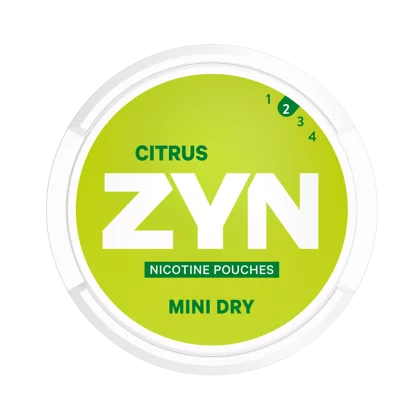Nicotine pouches have gained popularity in recent years as a tobacco-free and smoke-free alternative to traditional tobacco products, such as cigarettes and snus. These small pouches are completely free from tobacco and contain plant fiber, nicotine, and flavorings. Nicotine pouches are placed under the upper lip where they slowly release the stimulant nicotine into the bloodstream.
Nicotine is an addictive substance that stimulates the central nervous system, increasing levels of dopamine and other neurotransmitters. This release of chemicals in the brain leads to a range of physical and mental effects that can vary depending on the individual and the amount of nicotine consumed.
The purpose of this article is to explore how nicotine pouches make you feel, both in the short-term and the long-term, and to provide information about the use of nicotine pouches.
This article is intended to provide an overview of the potential effects of nicotine pouches on the body and brain and is not intended to provide medical advice, nor is it intended to focus on the health effects of nicotine pouches but rather how they make you feel when you use them and explain why.
How nicotine affects the body and brain
Nicotine is a powerful stimulant that affects the body and brain in various ways. When nicotine is absorbed into the bloodstream, it travels to the brain where it binds to receptors, causing the release of neurotransmitters and hormones, such as dopamine, norepinephrine, and acetylcholine. (Source)
Dopamine is a neurotransmitter that is responsible for feelings of pleasure and reward. When nicotine binds to receptors in the brain, it causes the release of dopamine, which creates a feeling of euphoria or pleasure. This release of dopamine is what makes nicotine addictive, as the brain associates the use of nicotine with a pleasurable experience. Norepinephrine is a hormone that is responsible for increasing heart rate and blood pressure, as well as improving cognitive function and focus. When nicotine binds to receptors in the brain, it causes the release of norepinephrine, which leads to increased energy and alertness, improved cognitive function, and increased focus. Acetylcholine is a neurotransmitter that is involved in muscle control, learning, and memory. When nicotine binds to receptors in the brain, it enhances the release of acetylcholine, which can lead to improved cognitive function and memory. (Source)
In addition to these effects, nicotine also causes the release of adrenaline, which leads to increased heart rate and blood pressure, as well as a decrease in appetite. However, nicotine can also have potential side effects, such as nausea, dizziness, and headache, particularly when consumed in high doses. People who are not used to nicotine will often experience the mentioned effects but a person who is a regular user of nicotine will normally not experience these same effects unless they consume a dose that is higher than they normally consume.
Short-term effects of nicotine pouches
The short-term effects of nicotine pouches can vary depending on the individual and the amount of nicotine consumed. Generally, the effects are felt within a few minutes of placing the pouch under the upper lip and can last for up to an hour or two. How fast the nicotine is absorbed into the blood and experienced depends on several factors but one of the most important is the moisture level of the pouch. With pouches that are dry, it will take slightly longer for the nicotine to kick in compared to a pouch that is moist.
One of the most notable short-term effects of nicotine pouches is a feeling of euphoria or pleasure, caused by the release of dopamine in the brain. This can lead to a sense of relaxation and well-being, as well as increased sociability and talkativeness. Some individuals may also experience increased energy and focus, due to the release of norepinephrine and acetylcholine. (Source)
As discussed earlier, the short-term effects of nicotine pouches can also include potential side effects, such as nausea, dizziness, and headache, particularly when consumed in high doses. These side effects can be particularly pronounced in individuals who are new to using nicotine pouches or those who have a low tolerance for nicotine.
Other short-term effects of nicotine pouches can include increased heart rate and blood pressure, as well as a decrease in appetite. These effects are due to the release of adrenaline, which can also lead to feelings of jitteriness or anxiety in some individuals.
It is important to note that the short-term effects of nicotine pouches can vary depending on the individual and the circumstances in which the pouches are used. For example, using nicotine pouches in stressful situations may lead to a different set of effects than using them in a relaxed or social setting. Additionally, the type and strength of the pouch will also impact the short-term effects experienced by the user. Using nicotine pouches with a higher nicotine strength will lead to more pronounced effects.
Comparison of nicotine pouches to other tobacco and nicotine products
Nicotine pouches are a relatively new form of nicotine product and differ from the traditional snus as it does not contain any tobacco.
Compared to cigarettes, nicotine pouches are much less harmful as they do not involve the combustion of tobacco and do not produce harmful chemicals such as tar and carbon monoxide.
Compared to smokeless tobacco products like snus, nicotine pouches are also generally considered to be less harmful, as they do not contain any tobacco. However, like snus and other tobacco products, nicotine pouches can still lead to addiction.
Responsible use of nicotine pouches
Like any tobacco or nicotine product, responsible use of nicotine pouches is important to minimize the risks associated with their use. Here are some tips for the responsible use of nicotine pouches:
- Use nicotine pouches in moderation. Limit your use to a few pouches per day and avoid using them continuously throughout the day.
- Avoid using nicotine pouches before bed, as nicotine can interfere with sleep.
- Do not use nicotine pouches during pregnancy, as nicotine can have negative effects on fetal development.
- Be mindful of the nicotine strength you choose. If you are an inexperienced nicotine user, opt for a nicotine pouch with a lower nicotine strength. Choosing a strong nicotine pouch with a high nicotine content may cause nausea, dizziness, and discomfort. It is always best to begin with a lower nicotine strength and then increase it as you see fit.
Overall, responsible use of nicotine pouches can help minimize the risks associated with their use. By following these tips and being aware of the potential risks and consequences of using nicotine pouches, individuals can make informed decisions about their use and take steps to protect their health.
Conclusion
In conclusion, nicotine pouches are a relatively new product that has gained popularity due to them being completely free from tobacco and smoke-free. Nicotine pouches are considered to be a more fresh and modern alternative. They contain nicotine but no tobacco and are designed to be placed under the upper lip, where the nicotine is absorbed into the bloodstream.
Nicotine pouches can produce a range of short-term effects, including a mild buzz, increased alertness, and reduced appetite.
While nicotine pouches may be considered less harmful than other tobacco and nicotine products, responsible use is still important to minimize the risks associated with their use.
-
ZYN Cool Mint Mini Dry Normal 3mgPrice is hidden
-
VELO Freeze MAXPrice is hidden
-
ZYN Mini Black Cherry 6 mgPrice is hidden
-
ZYN Cool Mint Mini Dry Extra StrongPrice is hidden
-
ZYN Espressino Mini Dry Normal 3mgPrice is hidden
-
Zafari Desert Mint 4mgPrice is hidden
-
VELO Ice Cool Mint Strong SlimPrice is hidden
-
ZYN Apple Mint Mini Dry 3mgPrice is hidden
-
ZYN Citrus Mini Dry Normal 3mgPrice is hidden















